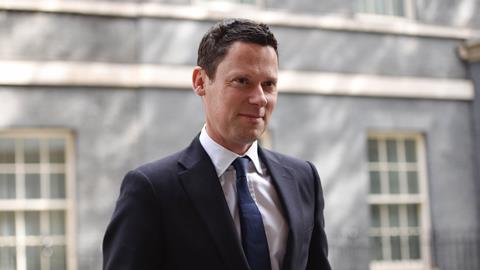Unmanaged illegal migration risks bringing the rule of law into disrepute, the lord chancellor said last night. In a speech to legislators and lawyers during a visit to the US, Alex Chalk MP said such migration 'disregards borders and is putting undue pressure on the national systems of rules-based countries like ours and is a fundamental challenge to our democracies.'
Chalk was speaking at Johns Hopkins University, Maryland, on the importance of the rule of law in a world where international postwar accords are 'fraying at the edges'.
'The truth is we are in a global contest of ideas, a contest between rule of law nations like ours and those who offer an authoritarian alternative – a solution that says agreements don’t matter, values don’t count, rights are mere impediments,' Chalk said. 'Instead, "might is always right". And it means that a global post-War consensus, which we assumed was unshakeable, now needs shoring up. Rather than letting complacency reign, we must reinforce the rule of law foundations on which it was built.'
Citing Russia’s invasion of Ukraine, the lord chancellor said states that 'rip up the rule book' must face repercussions.
'This has been exemplified by the UK’s role in expediting the International Criminal Court’s investigation into Russian war crimes. The UK has worked with the USA and the European Union to establish the Atrocity Crimes Advisory Group, which is supporting Ukraine’s prosecutor general in the domestic investigation and prosecution of more than 120,000 currently alleged conflict-related crimes, with both funding and expertise,' he said.
Meanwhile international instability is leaving many people feeling they have to leave their home country – sometimes illegally – which is putting huge pressure on countries such as the UK and the United States, and challenging democracies. 'It is clear that unmanaged illegal migration disregards borders and is putting undue pressure on the national systems of rules-based countries like ours and is a fundamental challenge to our democracies. It risks bringing those very rules into disrepute, if they are perceived to afford, perversely, an unfair advantage to those who break the immigration rules as compared with those who abide by them.’
Both international and domestic law must evolve if they are to meet the challenges posed by insecurity, and to win the global contest of ideas, Chalk said.
This article is now closed for comment.




























27 Readers' comments